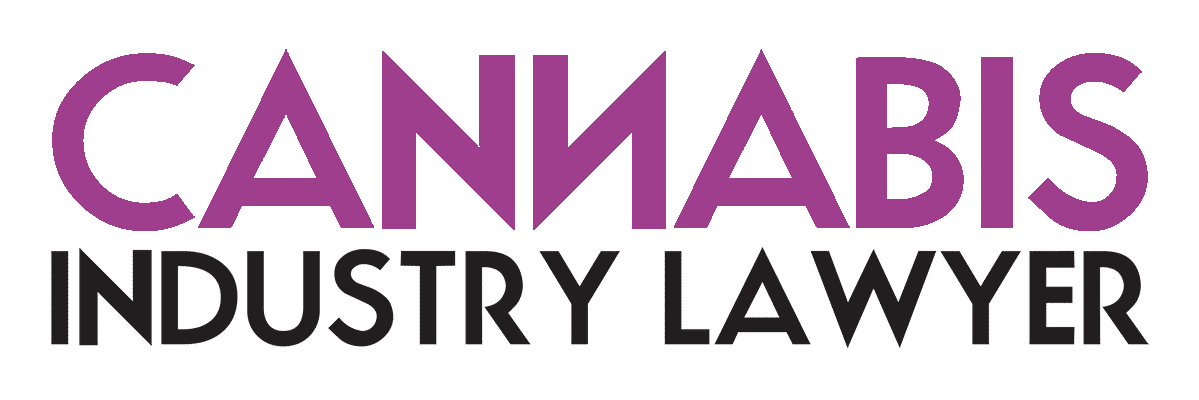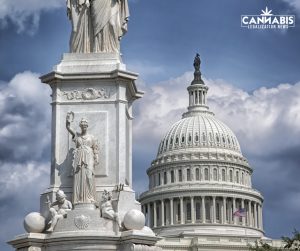 What is the MORE Act?
What is the MORE Act?
The MORE Act will be voted on by the House of Representatives this September. It will mark the first time since the passage of the Controlled Substances Act of 1970, which placed cannabis in the same category as heroin, that a Congressional chamber has voted to remove marijuana from the Schedule I controlled substance classification.
To decriminalize and deschedule cannabis, to provide for reinvestment in certain persons adversely impacted by the War on Drugs, to provide for expungement of certain cannabis offenses, and for other purposes.
What Will Be the Effects of the MORE Act?
If the MORE Act takes full effect, we will have a scenario where the law will protect the people with low-level marijuana offenses. Their criminal records will be cleared and their cases will be sent for another jurisdiction.
This bill is consolidated to decriminalize and deschedule cannabis in many forms that were previously based on the War on Drugs. Certain cannabis offenses will be sent for expungement and other purposes of the bill will have an impact on the overall jurisdiction system.
As part of the act of removal from the schedule of controlled substances, marijuana and tetrahydrocannabinols will no longer be part of the controlled substances. Removal from the schedule will take place not later than 180 days after the date of the enactment of this Act.
What does The MORE Act Targets?
- Decriminalizes marijuana at the federal level by removing the substance from the Controlled Substances Act
- Removes marihuana and tetrahydrocannabinols from the schedules of controlled substances
- Requires federal courts to expunge marijuana arrests and convictions to those still in custody or under court supervision for a marijuana offense.
- Requires the Bureau of Labor Statistics to regularly publish demographic data on cannabis business owners and employees,
- Establishes a trust fund to support programs and services for individuals and businesses in communities impacted by the war on drugs,
- Imposes a 5% tax on cannabis products and requires revenues to be deposited into the trust fund,
- Provides Small Business Administration loans and services available to entities that are cannabis-related legitimate businesses or service providers,
- Prohibits the denial of federal public benefits to a person on the basis of certain cannabis-related conduct or convictions,
- Prohibits the denial of benefits and protections under immigration laws on the basis of a cannabis-related event
- Establishes a process to expunge convictions and conduct sentencing review hearings related to federal cannabis offense
How the MORE Act Will Affect Cannabis Businesses
The MORE Act will allow further implementation to select the categories that are part of the cannabis business. The Bureau of Labor Statistics will compile, maintain, and make public data on demographics related to individuals who are business owners in the cannabis industry. At the same time, the Bureau will include individuals who are employed in the cannabis industry.
The overall demographic data will include:
- Age
- Certifications and licenses
- Disability status
- Family and marital status
- Nativity
- Race
- School enrollment
- Veteran status
- Educational attainment
- Sex
By collecting the mentioned data, the official legislative bodies will be able to know which segments in the Act will have the best impact in the cannabis business. Providing such data will decide how and where the official regulations can be applied.
How the Act Will End the War on Drugs?
The War on Drugs is a national campaign led by the U.S. federal government. It includes drug prohibition and military intervention intending to reduce the illegal activities that are part of the drug trade in the USA. Richard Nixon, the former president, announced the term in 1971 and declared a set of drug policies that were made to diminish production, distribution, and consumption of drugs.
As part of the new MORE Act, individuals who were impacted by the War on Drugs will be provided with funds to administer substance use treatment services. The official Community Reinvestment Grant Program will provide eligible entities with the necessary funds. Under the term ‘substance use treatment’, we recognize an evidence-based, professionally directed and planned regimen that helps patients with substance use disorders. Remission and recovery will include a complete evaluation, observation, and medical monitoring.
The term ‘eligible entity’ means a non-profit organization that is a representative of a community or a significant segment of a community where the services are available to individuals impacted by the War on Drugs. In section 5 of the MORE Act of 2019, we can find the terms that regulate the rights of individuals who use the treatment services.
The MORE Act Text & PDF
How Will the MORE Act Change Our Lives?
In most situations, the War on Drugs was based on the criminalizing of drugs. However, with the new MORE Act, the situation is different. We have more than one right to claim that official regulations will change the way we see marijuana and cannabis products.
The War on Drugs was part of American history and it had many consequences in our society. Now, we have the MORE Act that can completely change our opinions and habits when it comes to the production and usage of psychoactive substances.
As part of the MORE Act, it is possible to reclaim the rights of many people who have a criminal record on drug use and distribution.
It is left to see how many people will get a different opinion from the court when it comes to low-level marijuana offenses. If this happens, many people will be able to get freedom and clear criminal record as part of the new MORE Act implementation.
Equitable Licensing Grant Program
The MORE Act designates the Small Business Administration to establish and carry out the “Equitable Licensing Grant Program”, for developing and implementing equitable cannabis licensing programs that minimize barriers to cannabis licensing and employment for individuals most adversely impacted by the War on Drugs, including:
- A waiver of application fees for individuals who have had an income below 250 percent of the Federal Poverty Level for at least 5 of the past 10 years who are first-time applicants.
- A prohibition on the denial of a cannabis license based on a conviction for a cannabis offense that took place prior to State legalization of cannabis or the date of enactment of this Act, as appropriate.
- A prohibition on criminal conviction restrictions for licensing except with respect to a conviction related to owning and operating a business.
- A prohibition on cannabis license holders engaging in suspicionless cannabis drug testing of their prospective or current employees, except with respect to drug testing for safety-sensitive positions, as defined under the Omnibus Transportation Testing Act of 1991.
- The establishment of a cannabis licensing board that is reflective of the racial, ethnic, economic, and gender composition of the State or locality, to serve as an oversight body of the equitable licensing program.
Timeline Of The MORE ACT
- On July 23rd, 2019 the bill was introduced.
- Approved in the Judiciary Committee on November, 20th, 2019 with a vote of 24/10
- The Small Business Committee announced a waiver for the bill on January 5th, 2020.
- On January 15th, a legislative hearing in the Energy and Commerce Committee was held.
- On August 28th, it was reported that the House is preparing for a full floor vote on the MORE Act in September.
The Marijuana Justice Coalition Work On The MORE ACT
The Marijuana Justice Coalition is a broad coalition of 15 non-profit and national advocacy organizations, founded in 2018, who have joined forces to advocate for federal marijuana reform through a racial and economic justice lens.
The Marijuana Justice Coalition’s work on the introduction and the passage of the MORE Act has been fundamental. Recently they composed a joint letter to members of Congress asking them to support the Marijuana Opportunity Reinvestment & Expungement.
In this episode of Cannabis Legalization News we had the opportunity to have them as guests, hear what they told us about the MORE Act and their coalition.
Find your representative and ask where they stand on the MORE Act.
Thomas Howard has been in business for years and can help yours navigate towards more profitable waters.
Thomas Howard was on the ball and got things done. Easy to work with, communicates very well, and I would recommend him anytime.
Our cannabis business attorneys are also business owners. We can help you structure your business or help protect it from overly burdensome regulations.
![]()
316 SW Washington Street, Suite 1A
Peoria, Illinois 61602
Phone: (309) 740-4033 || Email: [email protected]

150 S. Wacker Drive, Suite 2400,
Chicago IL, 60606 USA
Phone: 312-741-1009 || Email: [email protected]
![]()
316 SW Washington Street, Suite 1A
Peoria, Illinois 61602
Phone: (309) 740-4033 || Email: [email protected]

150 S. Wacker Drive, Suite 2400,
Chicago IL, 60606 USA
Phone: 312-741-1009 || Email: [email protected]


